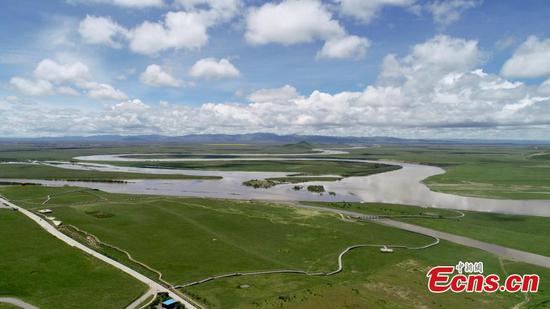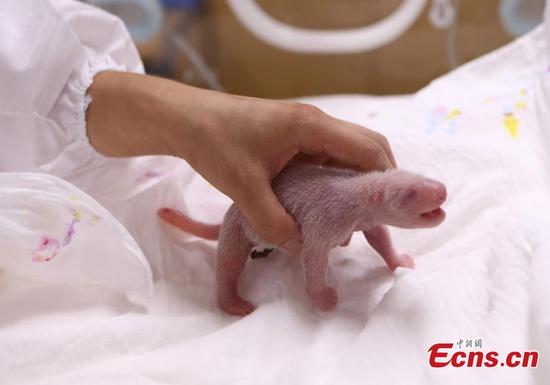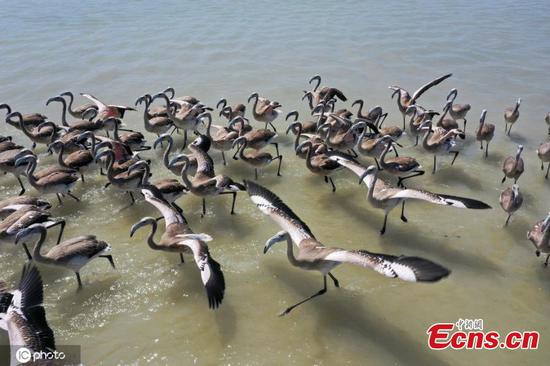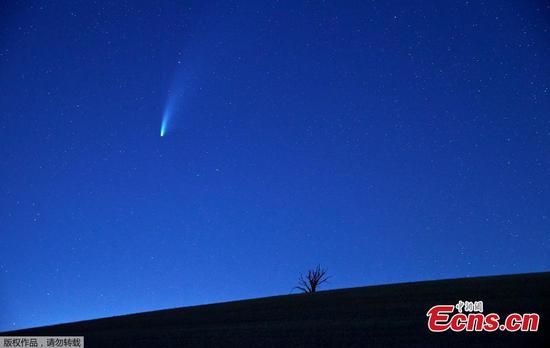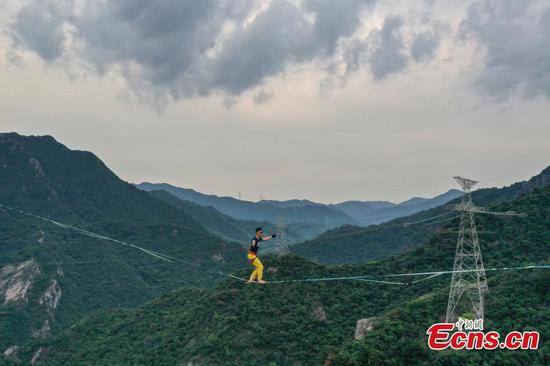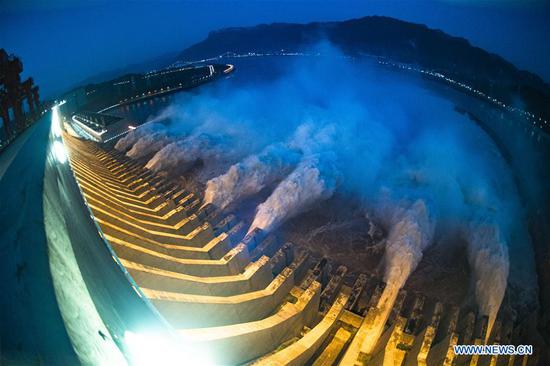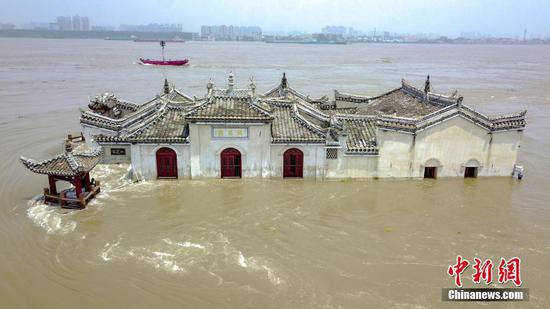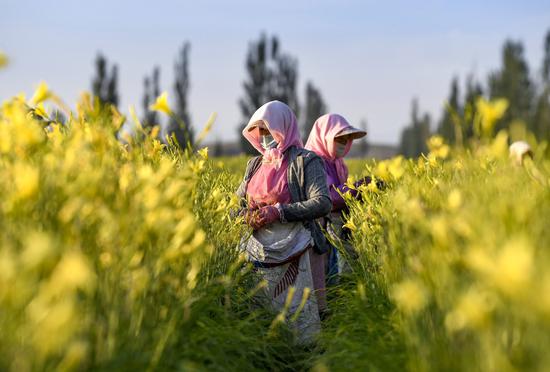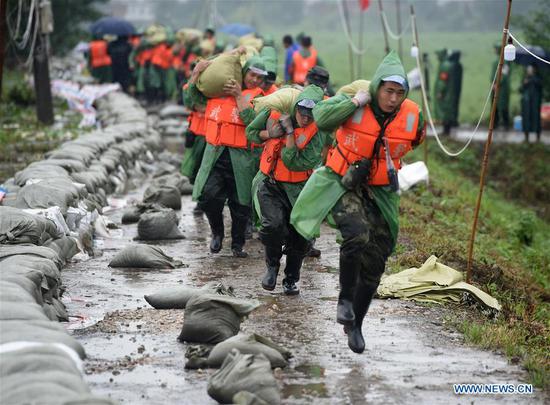
Li Zheng, who is in charge of an elk and bird rescue center of Dongting Lake, Hunan province, looks after a rescued elk cub earlier this month. [Photo/Xinhua]
A five-day-old elk cub was found days ago dying in the grass around an embankment of Dongting Lake, the second-largest freshwater lake in central China.
Continuous downpours have caused water levels to rise in major rivers and lakes in many parts of the country since the flood season started, posing a threat not only to people's lives and property but also to wild animals.
On July 5, Yang Xiaoqiang, a worker at the lake's nature reserve administration in Hunan province, received a phone call from a local resident about the cub. Yang rushed to the site and brought it back to a local elk and bird rescue center. The starving cub quickly drank three bottles of fresh milk.
"It's a young male deer who might have lost its mother because of the floods," Yang said.
Elks once lived in the marshes in the middle and lower reaches of the Yangtze River and became extinct during the late Qing Dynasty (1644-1911) due to climate change and human activities. It was not until the 1980s that the Chinese government began importing the species from overseas, and the population of elks in the lake region has now increased to over 200.

A five-day-old elk cub was rescued by Li Zheng, who is in charge of an elk and bird rescue center of Dongting Lake, Hunan province. [Photo/Xinhua]
"The habitat of elks would be inundated, and food would be difficult to find during the flood season," said Song Yucheng, an elk protection expert with the administration.
"It would have been a 'survival of the fittest' approach. However, considering the very small population of elks, we have been taking action to help the species make it through the flood season without affecting their natural habitat," Song added.
Ding Ming, a volunteer with an elk protection association, often brings food, including cabbages and carrots, to feed trapped wildlife around the lake.
"I was born and raised here, and I know every branch of the lake, as well as the location of the elks," said Ding, who usually spends a week around the lake during the flood season and guides the animals to safe highlands to escape the flooding.
Apart from elks, the rescue center also received two night herons.
"Night herons are summer migratory birds that nest at a low location," said Li Zheng, who is in charge of the rescue center. "The floods engulfed their nests, so the young birds can't find fish or shrimp, and may eventually die from lack of food and exhaustion."
There are 14 injured or trapped elks living in the center, and they will be released back into the wild after recovery, according to Li.










